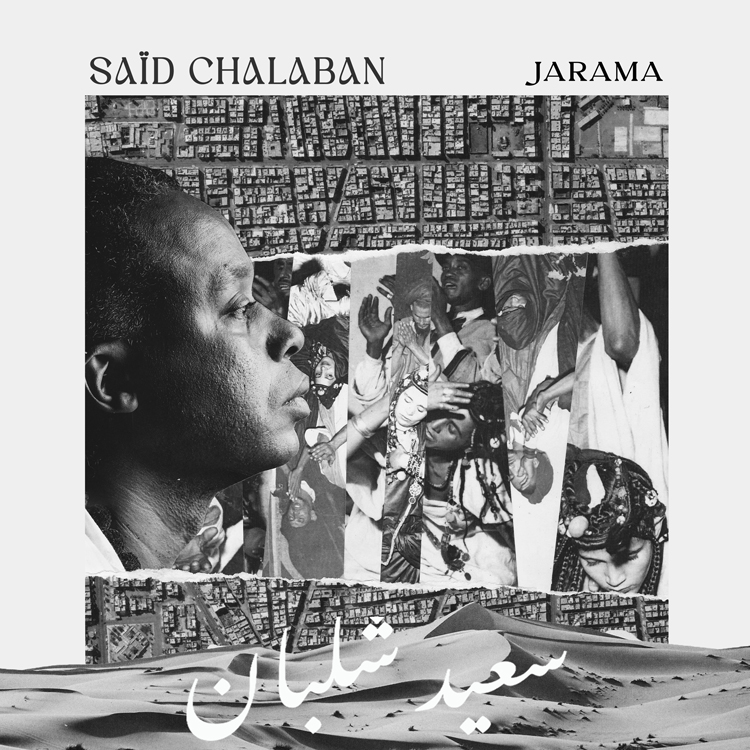Saïd Chalaban – Jarama (Argana Records, 2023)
Saïd Chalaban presents the Jarama EP connected to the 2018 documentary film “Échos du Sahara.” The making of the movie provided Moroccan-Hungarian musician and Chalaban founder Saïd Tichiti with a chance to revisit North Africa. During this extensive journey from Budapest to Laayun (El Aaiún), Dajla (Dakhla), and his birthplace Guelmim (Morocco), also known as the “Gate of the Desert,” Saïd reconnected with friends and delved into his Saharan musical roots.
This captivating adventure served as the inspiration for the EP, dedicated to the ancestral traditions of the Hassani and the Gnawa. The contested Sahara region, lying between southern Morocco and Mauritania, is enriched with the cultural heritage of the Hassani; Sahrawi tribes tracing their presence back to the 11th century. Meanwhile, the Gnawa, descendants of slaves brought to Morocco from sub-Saharan Africa during the same period, contribute to the cultural mosaic of the region. The EP brilliantly mirrors the spirit of the Hassani and Gnawa, embodying the convergence of Western Saharan culture with its Sub-Saharan and African origins.
In Jarama, ancient Gnawa, Shaabi, and Hassani songs seamlessly combine with captivating modern styles like dub, funk, desert blues and psychedelic rock. By embracing the aesthetics of modern genres and allowing space for improvisation and experimentation, Saïd extends ancient desert traditions to new horizons. Accompanying him on this recording are the exceptional Hungarian members of Chalaban. Overall, it is a fantastic album of modern Northwestern African music. I wish we could get a full album of this fabulous music.
Hassani concerts become fertile grounds for the birth of new poems and songs. Unconfined by a singular theme or length, Hassani songs unfold as open musical happenings where musicians set the tones and poets spontaneously craft rhyming lyrics.
The Songs:
- Jarama. In some Western African languages and dialects, Jarama means “Thank you.” A man says Jarama/Thank you to his lover instead of blaming her. He forgives her and chooses positivity over negativity.
- Ya Weylou. A song about jealousy.
- Ya Lolayli. A Hassani interpretation of the well-known “Ya Leyli” (“Oh my night”), using Arabic vocal improvisations (Mawwal). The Hassani are very well-known for their hospitality, as evidenced by the first verse: “We are even prepared to put up a tent (house) for anyone who visits us.”
- Fulani. This song is a symbol of the Gnawas’ attachment to their Sub-Saharan ancestors. The Fulani are one of West Africa’s largest ethnic groups, widely spread across the Sahara and the Sahel.
Musicians: Saïd Tichiti on vocals, guembri, lute, percussion; Mészáros Ádám on electric guitar; Kálmán András on keyboards and piano; Koroknay András on bass; Krecsmáry Zsolt on drums. Special guest: Amine Naami on vocals.
Buy Jarama.


